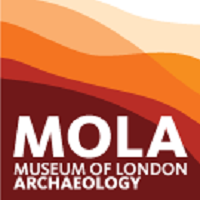AHRC Collaborative Doctoral Partnership PhD with MOLA and Queen Mary University of London (QMUL)

Summary
Radical Mudlarking? Reimagining the History of London as a Global City on the Thames Foreshore
Through our Collaborative Doctoral Partnership, MOLA aims to develop future leaders, specialists and advocates for archaeology, as well as extend our strong record for academic collaboration and engagement. This fully-funded PhD will be supervised by QMUL’s Prof Alastair Owens and Dr Edward Legon, with Dr Claire Harris and Ruth Taylor at MOLA.
Radical Mudlarking? Reimagining the History of London as a Global City on the Thames Foreshore will examine one the most popular and accessible forms of community-led public archaeology in the UK. While mudlarking has received notoriety in the last decade, especially via social media and TV, it possesses a much longer history. Mudlarks’ motivations have shifted over time from the reuse and exchange value of found objects to the significance of finds for understanding the capital’s history. A network of practitioners has formed – a community of enthusiasts and experts with its own culture.
This PhD will interrogate the reasons for its popularity, the socio-cultural and historical contexts of mudlarking’s development, and the ways in which it facilitates experiences of archaeological discovery and historical meaning-making. It will also address the role of organisations like MOLA in using mudlarking to enable new, global histories of London’s past, including those which have the potential to challenge linear – often exclusive – perspectives via the elucidation of historical experiences of the capital’s marginalised communities.
Research questions include:
- Who mudlarks? Why do people go larking? And what are the wider socio-cultural and historical contexts which help to explain the popularity of mudlarking?
- How do mudlarks make sense of the objects they find, develop historical narratives and, in particular, how do they seek to connect them to the history of the city?
- How might organisations like MOLA, through initiatives such as the Thames Discovery Programme, engage with mudlarking communities and use their finds to stimulate new understandings of the city’s history? Can such objects be used to point to some of London’s diverse and global heritages and to questions of historical injustice?
Applicants should have or expect to receive a relevant Masters-level qualification, or demonstrate equivalent experience in a professional setting.
The award pays tuition fees up to the value of the full-time home UKRI rate for PhD degrees. The UKRI Fee Level for 2022/23 is £4,596. This studentship is open to both Home and International applicants. If you are an International fee-paying candidate and are awarded the studentship, you need to ensure that you can fund the difference between UK and International fees.
The studentship includes a stipend of £16,062/year plus London weighting of £2000/year and a Collaborative Doctoral Award maintenance payment of £550/year. The student can also claim research-related expenses of up to £1000/year from MOLA.
Application deadline: 6 June 2022. We anticipate holding interviews during week commencing 20 June 2022 and the studentship will start 1 October 2022.
Further information about the studentship, entry requirements and application process are available on the QMUL website. Please contact Prof Alastair Owens (a.j.owens@qmul.ac.uk) or Dr Claire Harris (charris@mola.org.uk) for further information.
 MOLA is a CIfA Registered Organisation
MOLA is a CIfA Registered Organisation

